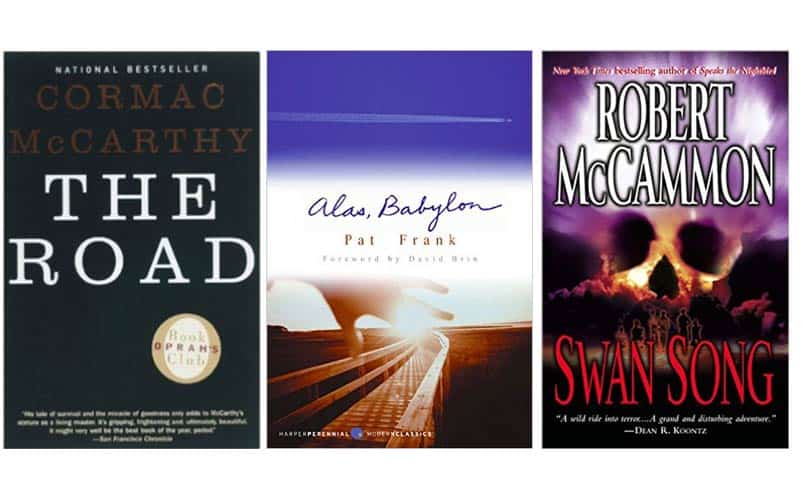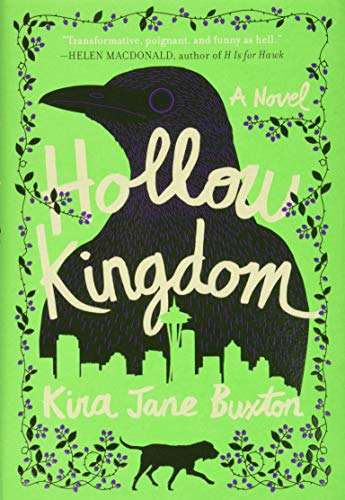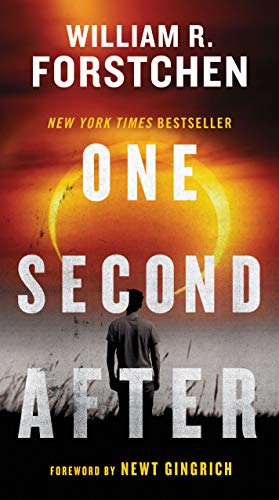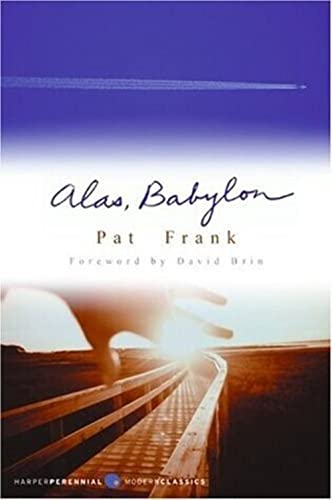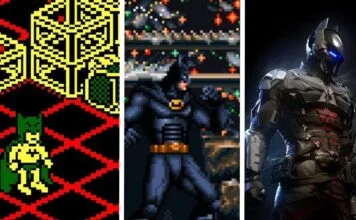Nerd Much? might get a small share of the sale if you click links on this page, as we are a part of various other affiliate programs. For more, read our Editorial Standards.
When it comes to the apocalypse, there are so many popular video games, TV shows, and movies available. The Last of Us, The Girl with All the Gifts, and Fallout 4 always get us in the mood to curl up with some good post-apocalyptic novels afterward. Pick your poison; we’ve covered all the offenders, from nuclear war to disease to zombies.
So, if wandering the wasteland has got you craving some end-of-the-world reads, check out our list of these essential sci-fi reads for inspiration.
Here are the top 15 best post-apocalyptic books to read (in no particular order, by the way!):
1The Road by Cormac McCarthy
Pulitzer Prize-winning novel The Road is practically required reading as far as the best post-apocalyptic books go. The bleak, minimalist style seems appropriate to the setting of nuclear winter, and although the book isn’t heavy on plot, it still manages to be completely absorbing.
Although generally a person who likes neat resolutions and explanations for everything, I still found this book incredibly compelling although it has neither of those things. There is no distinct beginning, climax, or conclusion — it is just a father and son wandering toward the coast, with no clear idea of what they will do when they reach it. It is implied that there was some sort of nuclear warfare, but no further explanation than that. Readers who can get past that will find McCarthy’s writing style both poetic and hauntingly beautiful. Read the official synopsis here.
If you want more from Cormac McCarthy, check out our list of the best books about serial killers, as one of his books is also featured on that list.
2The Stand by Stephen King
It seems only natural to include master of horror Stephen King on this list with his apocalyptic contribution The Stand. It’s about a plague that is accidentally unleashed upon the world from a government lab and wipes out most of humanity (save those that are mysteriously immune), which would be compelling enough in its own right; but, this being Stephen King, he, of course, has to add some supernatural elements as well.
God is present as well; not the benevolent deity we are used to, but the vengeful, angry Old Testament God, giving this book the feel of an epic biblical story. If you’re feeling especially ambitious, you can read the uncut version, which is several hundred pages longer than the one originally released in 1980. Read the official synopsis here.
3Hollow Kingdom by Kira Jane Buxton
I don’t think it’s possible to rave about Hollow Kingdom by Kira Jane Buxton enough – it’s that good. Admittedly, it’s a different sort of post-apocalyptic tale than you’re used to, as it’s wholly unique. It tells the tale of disease-ridden humans that’s caused by technology, sure – but it’s told from the perspective of a hopeful and heart-filled domesticated crow. The crow sets out on a journey with his dog friend in tow to try and figure this apocalypse out – what happened, how to stop it, etc. You’ll meet incredibly memorable characters along the way, and you’ll find yourself in awe at the book’s surprising prose and beauty.
I should also note that Hollow Kingdom is goddamn hilarious, which isn’t typical for apocalypse tales. If you’re open to the idea of a post-apocalyptic comedy that, essentially, feels like The Secret Life of Pets for grown-ups, you should definitely give Hollow Kingdom a read.
We also included Hollow Kingdom to our list of the best science fiction comedy books.
4World War Z by Max Brooks
As the author, Max Brooks, is the son of comedian Mel Brooks, and used to write for SNL, you might expect World War Z to be a humorous, gimmicky book (similar to The Zombie Survival Guide); this would be a mistake. It is a serious socio-economic and political commentary that happens to be set against the background of a zombie apocalypse.
It’s also vastly different from the movie (if you’ve seen that already); rather than an action-packed thriller, the book is set up more like a documentary, with a series of interviews and eyewitness accounts. That’s not to say that it’s boring by any means; on the contrary, it’s a real page-turner. Of course, we also included it in our list of the best sci-fi books to read, as well as the best zombie books. Read the official synopsis here.
5Earth Abides by George R Stewart
In Earth Abides by George R Stewart, we again see disease as the chosen device to wipe out humanity. Apparently, this book is actually what inspired Stephen King to write The Stand (see above). Like The Road, this book is not heavy on action, but rather focuses more on the sociological repercussions of the apocalyptic plague. It is fascinating, just not in a keep-you-on-the-edge-of-your-seat way; it moves along at a languid pace, taking place over the course of several years, but still manages to be both engrossing and haunting.
There may seem to be nothing to distinguish this book from the hordes of other post-apocalyptic novels, but the reader should bear in mind that this book was one of the first of its kind and therefore helped pioneer the genre. It’s not recommended to read this book while you’re home alone with a cold, however. Read the official synopsis here.
6Oryx and Crake by Margaret Atwood
Oryx and Crake is the first installment in the three-part MaddAddam series by award-winning author Margaret Atwood. Not only has the rest of humanity (save the main protagonist) been eradicated, but the world has been taken over by a new race of genetically engineered, docile, simplistic humans. Atwood has a knack for writing dystopian novels that are close enough to our own reality to be almost feasible, and that is what makes them so delightfully creepy.
Orxy and Crake is utterly engaging, clever, and thought-provoking; it raises many ethical questions regarding the direction in which science is headed, and whether or not it could be going too far. Read the official synopsis here.
7I Am Legend by Richard Matheson
Here we have another author recommended by Stephen King himself; in fact, Mr. King states that Richard Matheson may be the author that has influenced him the most. If that’s not endorsement enough for I Am Legend, I don’t know what is. The movie version starring Will Smith is undoubtedly fantastic, but if you’ve only seen the movie and not read the book, you are definitely missing out.
This book is unique in that the plague is vampires, not zombies, and Robert Neville is not one of few humans left on earth, he is the last. The movie makes them seem more zombie-esque; in the book, they are far more fearsome. The gut-wrenching loneliness Neville experiences is absolutely chilling; that combined with the creatures makes this book positively nightmare-inducing. Read the official synopsis here.
8One Second After by William R Forstchen
The premise of New York Times bestselling author William R. Forstchen’s cautionary tale One Second After is this: an electromagnetic pulse emitted from three nuclear weapons renders all electronic devices completely useless, consequently causing the breakdown of society as we know it.
The most terrifying part of this novel is that the scenario is by far the most realistic of all the post-apocalyptic concepts; it was based, in fact, on a threat Forstchen perceived as being very real. Admittedly, the writing style can be a bit grating at times, but the premise of the story is highly interesting if you’re not especially sensitive to the repetitive dialogue and the sometimes preachy nature of the book. It’s essential reading for those looking for the best post apocalyptic books. Read the official synopsis here.
9A Canticle for Leibowitz by Walter M. Miller, Jr.
1961 Hugo Award-winning novel A Canticle for Leibowitz by Walter M. Miller, Jr., is made up of three parts, with a span of six centuries between each and the first part taking place six years after the 20th century. Like many post apocalyptic books, it is a cautionary tale against nuclear warfare and about taking the dangers of science too far.
It is unique in the fact that the timeline spans more than a century, and mankind seems determined to destroy itself not just once, but multiple times; and, although set in the future, each section reflects something from our own history, illustrating how mankind is doomed to repeat their mistakes. Which makes sense, considering that it was written during the Cold War era. It is also somewhat anti-science, pro-religion, so bear that in mind if you choose to pick it up. Read the official synopsis here.
10The Passage by Justin Cronin
Since this is a vampire novel, we’ll get the obligatory Twilight comparison out of the way first; this is decidedly not Twilight-esque. Books about zombie apocalypses are rampant; The Passage may be the first we’ve heard of a vampire apocalypse (and why not?). Not just any vampires, either; these are government-engineered vampires, although they mostly adhere to the traditional mythos (with a few twists, although they don’t sparkle in sunlight).
This is a hefty work, coming in at over 750 pages, but one you could easily finish in a few days due to its compelling nature. The beginning of the story is utterly gripping, and although it lags in parts after that, it is worth a little patience. Epic in scale and wonderfully complex, this is one end-of-the-world story you won’t want to miss. Read the official synopsis here.
11Alas, Babylon by Pat Frank
Here we have another nuclear-war induced holocaust, an idea which gained popularity during the Cold War Era, and the concept of which is always chilling in its realism. Published more than half a century ago, this book has withstood this test of time; it remains as poignant and as relevant today as ever. It is certainly a product of its time, but in some ways is actually quite progressive in that gender and racial roles tend to fall by the wayside in the wake of the apocalypse.
Alas, Babylon is less bleak than many of the other books on our list; it is filled with hope, and is truly a story of survival and the triumph of the human spirit (although of course the subject matter is depressing by nature). Read the official synopsis here.
12The Day of the Triffids by John Wyndham
In The Day of the Triffids we have perhaps the most unique apocalyptic scenario: rampant blindness resulting from the Earth passing too close to a green comet combined with killer plants. Like walking, poisonous, semi-sentient plants. It is another book that apparently rose from Cold War paranoia, but without the nuclear war component.
It is fascinating, despite the blatantly ableist overtones – namely, the few sighted people debating whether or not they should even bother with the blind majority – and the treatment of women as glorified incubators. Once again, this is a book that is certainly a product of its time; so, if you can forgive the aforementioned transgressions on that account, the novelty of the story is captivating. Read the official synopsis here.
13Swan Song by Robert McCammon
Swan Song is a delightful and unique combination of post-apocalyptic horror and fantasy; think The Stand, but with nuclear warfare instead of a deadly virus. It has similar supernatural and good-versus-evil elements (and is similarly long). Be warned that the gritty realism contained herein is not for the faint of heart; the book is often gruesome and horrific things happen to the main characters.
It is heartbreaking, but also hopeful, and contains spectacularly developed characters that you will undoubtedly grow attached to. Do yourself a favor and pick this one up if you’re a fan of the genre; don’t be daunted by the length, because we promise you that you won’t want it to end. Read the official synopsis here.
14A Boy and His Dog at the End of the World by C.A. Fletcher
A Boy and His Dog at the End of the World is the non-fantasy debut novel by C.A. Fletcher (Charlie Fletcher) and it is an absolutely captivating tale that’s a must-read for survival and post-apocalyptic enthusiasts.
The main character is quite likable, and the story is a thrilling page-turner with some interesting settings. It follows Griz who is on the hunt for the man who stole the beloved family dog. I can’t give much more detail than that in fear of breaking the blood oath you’re essentially forced to sign at the beginning of the story that says to hold the book’s secrets close to you so as to not spoil it for others. However, I will say that even after the novel was over, I wanted to stay in that world. In fact, A Boy and His Dog at the End of the World quickly became one of my favorite books of 2019 so far. It’s filled with suspense (like something you’d find from other book writing professionals), intrigue, and great characters. And because of just how much I enjoyed Fletcher’s first novel, I’m anxiously awaiting whatever his sophomore non-fantasy novel is and I’m stalking him on social media.
15The Book of M: A Novel by Peng Shepherd
I recently spent a week in the early part of July to read a couple new post apocalyptic books that I hadn’t read yet, including this one: The Book of M: A Novel by newcomer Peng Shepherd. And, honestly, it was one of those books you get lost in. After the first couple of chapters, I was wholly engrossed in its unique apocalyptic setting.
In The Book of M, the apocalypse starts when people begin losing their shadows, and along with it, their memories, in an epidemic dubbed The Forgetting. I know, I know – it sounds a bit corny, as far as premises are concerned. However, I found myself enjoying it much more than I thought I would after initially reading its description.
The characters are well-formed and just about all of them are memorable in their own way, and somehow, Peng paints them in a way that makes you feel like you’re right there with them, trying to figure out the mystery of lost memories and how this is happening. It’s a brilliant tale, right down to its climax, and Peng does a great job presenting the reader with an unsettling apocalypse that’s truly riveting.
